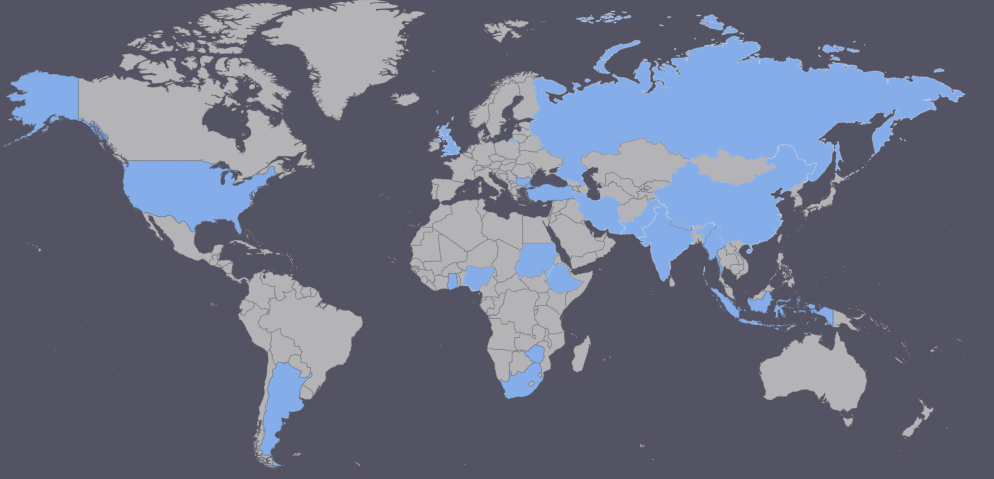Sustainable Development in the Oil and Gas Sector: Considering Economic, Environmental and Social Aspects
Keywords:
Sustainability, Energy transition, Carbon neutrality, Green technologies, Stakeholder engagementAbstract
Although the oil and gas sector is vital to the growth of the world economy, it also faces severe environmental and social problems. Achieving sustainability in the sector necessitates striking a balance between economic, environmental, and social factors. The oil and gas industry's struggles to adopt sustainable practices are covered in this manuscript's overview of sustainability in that sector. It explores how industry can be more sustainable in terms of the economy, environment, and society, and it highlights ways to do this. The paper also explores the value of reporting on sustainability efforts and offers examples of sustainable business strategies in action. The final section of the manuscript examines the future of sustainability in the oil and gas sector, covering new trends and problems, chances for innovation and teamwork, and a call to action for stakeholders in the sector to prioritize sustainability.
References
Abes, A., Irofti, D., Ifrene, G. E., Rasouli, V., Djemai, S., 2021. The Impact of Geometric Attributes of Fractures on Fluid Flow Characteristics of Reservoir: A Case Study in Alrar Field, Algeria. In 55th US Rock Mechanics/Geomechanics Symposium, OnePetro. https://onepetro.org/ARMAUSRMS/proceedings/ARMA21/All-ARMA21/ARMA-2021-1803/468185.
Barnett, M. L., King, A. A., O’Rourke, D., 2019. Globalization and the sustainability of large-scale farming in Latin America. Proceedings of the National Academy of Sciences 116 (10), 4382-4387.
Boiral, O., Gendron, Y., 2011. Sustainability reports as simulacra? A counter-account of A and A+ GRI reports. Accounting, Auditing & Accountability Journal 24 (8), 1037-1070.
Branco, M.C., Curto, J.D., Eugénio, T., 2018. Sustainability reporting and assurance: A historical analysis and future outlook. Journal of Cleaner Production 172, 3505-3521.
Carroll, A.B., Brown, J.A., Buchholtz, A.K., 2012. Business and Society: Ethics, Sustainability, and Stakeholder Management. Cengage Learning. Channel Center Street Boston, MA 02210 USA.
Chevron, 2021. Social investments in Angola and Nigeria. Retrieved from https://www.chevron.com/countries/.
Delmas, M.A., Toffel, M.W., 2011. Stakeholders and environmental management practices: An institutional framework. Business & Society 50 (1), 103-129.
Equinor, 2021. Climate ambitions. Retrieved from https://www.equinor.com/en/how-and-why/climate-ambitions.html.
Franco, I.B., de Oliveira, J.A.P., Ali, S.H., 2018. Peace with Hunger: Colombia’s Checkered Experience with Post-Conflict Sustainable Community Development in Emerald-Mining Regions. Sustainability 10, 504. https://doi.org/10.3390/su10020504.
Farid, M.M., Hamad, M.A., Nizami, A.S., 2020. Integrated hydrogen, power and CO2 capture (HYPOCC) systems for decarbonizing the oil and gas sector: A review. Renewable and Sustainable Energy Reviews 123, 109779.
Fernández-Guadaño, J., Fernández-Méndez, C.M., León, C.J., 2019. Sustainability reporting in the oil and gas industry: Trends and challenges. Sustainability Accounting, Management and Policy Journal 10 (2), 168-193.
Ifrene, G.E., Irofti, D., Khetib, Y., Rasouli, V., 2022. Shear Waves Anisotropy and Image Logs Integration for Improved Fracture Characterization. In 56th US Rock Mechanics/Geomechanics Symposium, OnePetro. https://doi.org/10.56952/ARMA-2022-0319.
International Energy Agency, 2019. Global CO2 emissions in 2018. Retrieved from https://www.iea.org/reports/global-co2-emissions-in-2018.
Irofti, D., Ifrene, G.E., Pu, H., Djemai, S., 2022. A Multiscale Approach to Investigate Hydraulic Attributes of Natural Fracture Networks in Two Tight Sandstone Fields, Ahnet, Algeria. In 56th US Rock Mechanics/Geomechanics Symposium. OnePetro. https://doi.org/10.56952/ARMA-2022-0450.
Khetib, Y., Ling, K., Ifrene, G.E.H., Allam, L., Omar, B., Aoun, A.E., 2022. Experimental and Simulation Investigation of Severe Slug Flow Attenuation Using a Dampening Pipe Volume. Available at: https://ssrn.com/abstract=4236231 or http://dx.doi.org/10.2139/ssrn.4236231.
Kolb, M., 2020. Oil and gas industry and indigenous peoples: A complex relationship. Energy Policy 142, 111505.
IPIECA, 2019. Sustainability in the oil and gas industry: An IPIECA perspective. Retrieved from https://www.ipieca.org/resources/sustainability-in-the-oil-and-gas-industry-an-ipieca-perspective/.
IPIECA, 2020. Sustainability reporting guidance for the oil and gas industry. https://www.api.org/-/media/files/ehs/climate-change/ipieca_sustainability-guide-2020.pdf.
Ritchie, H., Roser, M., Rosado, P., 2020. CO₂ and Greenhouse Gas Emissions. Published online at OurWorldInData.org. Retrieved from: https://ourworldindata.org/co2-and-greenhouse-gas-emissions.
Nash, J., 2019. Economic growth and the oil and gas industry. In Proceedings of the 3rd International Conference on Business, Management and Economics, Bali, Indonesia.
Bartlett, R.V., Wang, Y., Knapp, K.C., 2020. The economic and fiscal contributions of the US oil and natural gas industry. Energy Policy 137, 111119.
Jang, H., Yoo, S.H., Lim, K., 2021. Renewable energy transition in oil and gas companies: Comparative analysis of current status and future prospects. Energy Policy 148, 111957.
Schiebahn, A., Laubenstein, C., Ganswindt, M., 2020. A review of resource efficiency practices in the oil and gas industry. Journal of Cleaner Production 273, 123086.
Sawant, S., Wadnerkar, P., Mukherjee, A., 2019. Environmental impact of oil and gas exploration: A review. Journal of Cleaner Production 208, 1299-1308.
Holloway, S., Shannon, M., Padgett, J., 2021. An overview of carbon capture and storage technology: Background, status, and future trends. Energy and Environmental Science 14 (2), 684-724.
IEA, 2021. Net zero by 2050. https://www.iea.org/reports/net-zero-by-2050.
Lacey, J., Palmai, M., Phillips, R.A., 2020. Communities and corporations: Addressing the social impact of resource development. Journal of Cleaner Production, 268, 122247.
Mallapragada, D.S., David, S., Sivaraman, D., Borah, P., 2021. European Union’s Emissions Trading System: An overview and perspectives. Journal of Cleaner Production 287, 125186.
Neff, R.A., Breyer, C., Herzog, H.J., Lipman, T., 2018. The social cost of carbon and the shadow price of investment: Policy tools for responsible fossil fuel investment. Energy Policy, 122, 444-450.
Ribeiro, H., Schaeffer, R., de Souza, R.R., 2020. The impacts of oil and gas activities on local communities in Brazil: A systematic review of the academic literature. Energy Research & Social Science 67, 101507.
van der Linde, C., Castaldi, C., Horsfield, B., 2017. Engaging with communities: The contribution of oil and gas companies to local development. Journal of World Energy Law & Business 10 (2), 102-122.
Shell, 2021. Powering progress together: Shell's social investment programme. Retrieved from https://www.shell.com/sustainability/powering-progress-together/social-investment-programme.html.
Total, 2021. Social responsibility in Uganda. Retrieved from https://www.total.ug/en/our-commitments/social-responsibility-uganda.
Downloads
Published
Issue
Section
License
The authors keep the copyrights of the published materials with them, but the authors are aggee to give an exclusive license to the publisher that transfers all publishing and commercial exploitation rights to the publisher. The puslisher then shares the content published in this journal under CC BY-NC-ND license.



